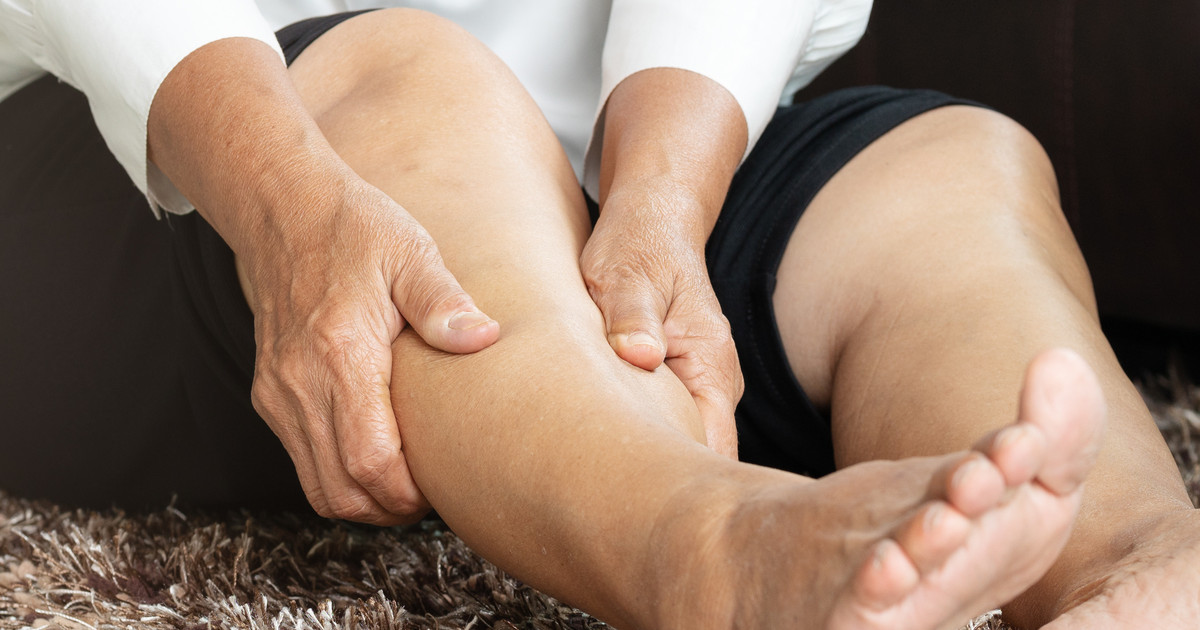Warning Signs Of Peripheral Neuropathy
Peripheral neuropathy is a condition where the nerves responsible for carrying messages to and from the spinal cord and brain and the rest of their body are damaged. Many factors cause it, including exposure to toxins, illness, trauma, infection, diabetes, poor nutrition, vitamin deficiency, chemotherapy, cancer, thyroid disease, kidney disease, shingles, autoimmune diseases, and certain medications.
Peripheral neuropathy treatment includes pain medications and anti-seizure meds. Antidepressants for peripheral neuropathy are also possible. Patients may require a plasma exchange, physical therapy, and even surgery to cure peripheral neuropathy. Transcutaneous electrical nerve stimulation may also be a treatment option.
Gradual Numbness In The Extremities

Individuals can experience gradual numbness in the hands and feet when the sensory nerves in the area are damaged over time. Sensory nerves are the nerves outside the central nervous system. They are responsible for communicating changes in temperature, pain, touch, and vibration to the brain. The sensation may start as tingling or prickling feelings that come and go and progress to complete numbness. They may begin spreading upward to the arms or legs.
Peripheral neuropathy does not usually cause symmetrical nerve damage. Thus, sensation in one hand may be stronger than a sensation in the other. The numbness in the extremities can also have a layered nature. Patients may feel as if they are wearing a pair of thick gloves or socks that impair the normal sensation in the upper layers of tissue.
Keep reading to learn more about the symptoms of peripheral neuropathy now.
Increased Sensitivity To Touch

Hyperesthesia describes when an individual experiences an increase in any one of their five senses, including touch. Tactile defensiveness is a specific increase in sensitivity to touch. Individuals affected by tactile defensiveness may experience pain when a simple and benign touch or other stimuli trigger certain nerves.
Many experts believe that peripheral neuropathy can cause increased sensitivity to touch due to ectopic discharges in sensory neurons and increased excitability when the nerves incur damage. This heightened sensitivity to touch in peripheral neuropathy patients is most often episodic. It tends to have certain triggers. Individuals affected by this increased touch sensitivity describe it as burning, electric shock, and shooting sensations.
Uncover more warning signs of peripheral neuropathy now.
Lack Of Coordination

A peripheral neuropathy patient may experience damage to the nerves that control the muscles in the feet and legs that allow them to stand and walk. When these nerves are damaged, they cannot effectively transmit impulses to the muscles to tell them to contract at the right time or at all. Damaged sensory nerves in the legs and feet can cause a patient to be unable to balance properly due to intermittent numbness and other abnormal sensations.
The foot of an affected patient feels the same as if a healthy individual has a foot that has fallen asleep, and then they try to stand up and walk on it. The lack of feeling causes an inability to coordinate the sequence of muscle movements required to stand and walk properly.
Discover additional symptoms linked to peripheral neuropathy now.
Sharp Or Throbbing Pain

An individual with peripheral neuropathy may experience sharp or throbbing pain in their hands, feet, arms, and legs. Many describe this type of pain as a sharp and burning pain or a deep throbbing ache that comes and goes. Some individuals with this condition experience pain derived from the cramping and spasm of the muscles that damaged nerves control. This pain occurs when nerve impulses command a muscle or muscle group to contract. Then, the impulse meant to tell the muscles to relax is lost along the damaged nerves.
This malfunction causes the patient to experience muscle cramping and spasm pain the same way a healthy individual experiences pain when they get an occasional leg cramp. A patient may experience sharp pain when sensory nerve damage causes the fibers to become abnormally oversensitive to non-painful stimuli. Affected individuals describe this pain as a sharp, jabbing pain that a light touch can trigger.
Get more information on the major warning signs of peripheral neuropathy now.
Muscle Weakness

Muscle weakness is when an individual is unable to produce a muscle movement. A muscle movement begins with stimuli that trigger the individual's brain to react. The brain determines which muscles need to be moved and then sends impulses to the nerves connected to the muscles it intends to move. The nerve impulses travel from the individual's brain to their spinal cord and then to the branched out nerves the control the target muscles.
This process of communication cannot be interfered with or interrupted in any way for an individual to move their muscles normally. Nerves in the extremities become damaged with peripheral neuropathy. It keeps nerve impulses from moving to the appropriate muscle without any interruption or interference. As a result, an affected individual may experience muscle weakness or be unable to move a muscle to the extent they are attempting.
Read more about the symptoms associated with this condition now.
Drop In Blood Pressure

Peripheral neuropathy can also cause patients to experience a drop in blood pressure as a symptom. For reference, many doctors consider a patient’s blood pressure low if it is causing problems. However, others define it as readings that are lower than ninety millimeters of mercury (mmHg) systolic and sixty mmHg diastolic. Patients may have lower than normal blood pressure if either the systolic or diastolic number is lower than that. A drop in blood pressure can cause issues, including dizziness, and be a sign of peripheral neuropathy, as stated. The drop does not have to be much, either, and can even be just a twenty mmHg change.
Get more information on the warning signs of peripheral neuropathy now.
Excessive Sweating

Some individuals with peripheral neuropathy will deal with excessive sweating as a symptom of this condition. Excessive sweating, also called hyperhidrosis, is what it sounds like: sweating too much and doing so regularly. When peripheral neuropathy is the cause of an individual's excessive sweating, it is a form of secondary hyperhidrosis. When an individual sweats too much due to this condition, it is often because their autonomic nerves are affected. Autonomic nerves are the ones that connect organs. They control functions such as an individual's bladder, heart rate, digestion, and blood pressure.
Continue reading to uncover additional peripheral neuropathy symptoms now.
Muscle Twitching

Individuals with peripheral neuropathy may experience some muscle twitching, particularly when it is their motor nerves that are affected. Muscle twitching due to this condition is typically uncontrolled. Patients will likely be able to see the muscle twitching underneath their skin rather than simply feel it, especially when this symptom progresses. In some cases, the twitching will present as muscle cramps instead. Muscle spasms are also common in peripheral neuropathy. Of course, the precise presentation and intensity varies from patient to patient and depends on factors such as what nerves are affected and the stage of their overall condition.
Get additional details on the various warning signs linked to peripheral neuropathy now.
Constipation Or Diarrhea

As most individuals know, constipation includes straining during bowel movements, having fewer bowel movements than normal, and passing hard stools. Diarrhea is the opposite. It involves having watery and loose stools and, in many cases, frequently needing to visit the bathroom to have a bowel movement. Patients may experience constipation or diarrhea as a symptom of peripheral neuropathy. These symptoms will likely occur when the patient’s nerve damage is linked to nerves in their digestive tract. Although some individuals may find these symptoms can disappear over time, peripheral neuropathy must be managed for most patients to experience reliable relief.
Discover more symptoms of peripheral neuropathy now.
Digestion Problems

Some cases of peripheral neuropathy can also carry digestion problems as a symptom. Examples of these problems include dealing with nausea and vomiting as well as bloating. Nausea, of course, is feeling the need to vomit. Bloating is feeling of the abdomen or stomach being tight and full. Some may consider trouble eating or swallowing as part of this group, though it is not always. Digestion problems, including bloating, nausea, and vomiting, due to peripheral neuropathy often occur when an individual’s autonomic nerves are the ones that are affected. As mentioned previously, these are the nerves that connect internal organs.
